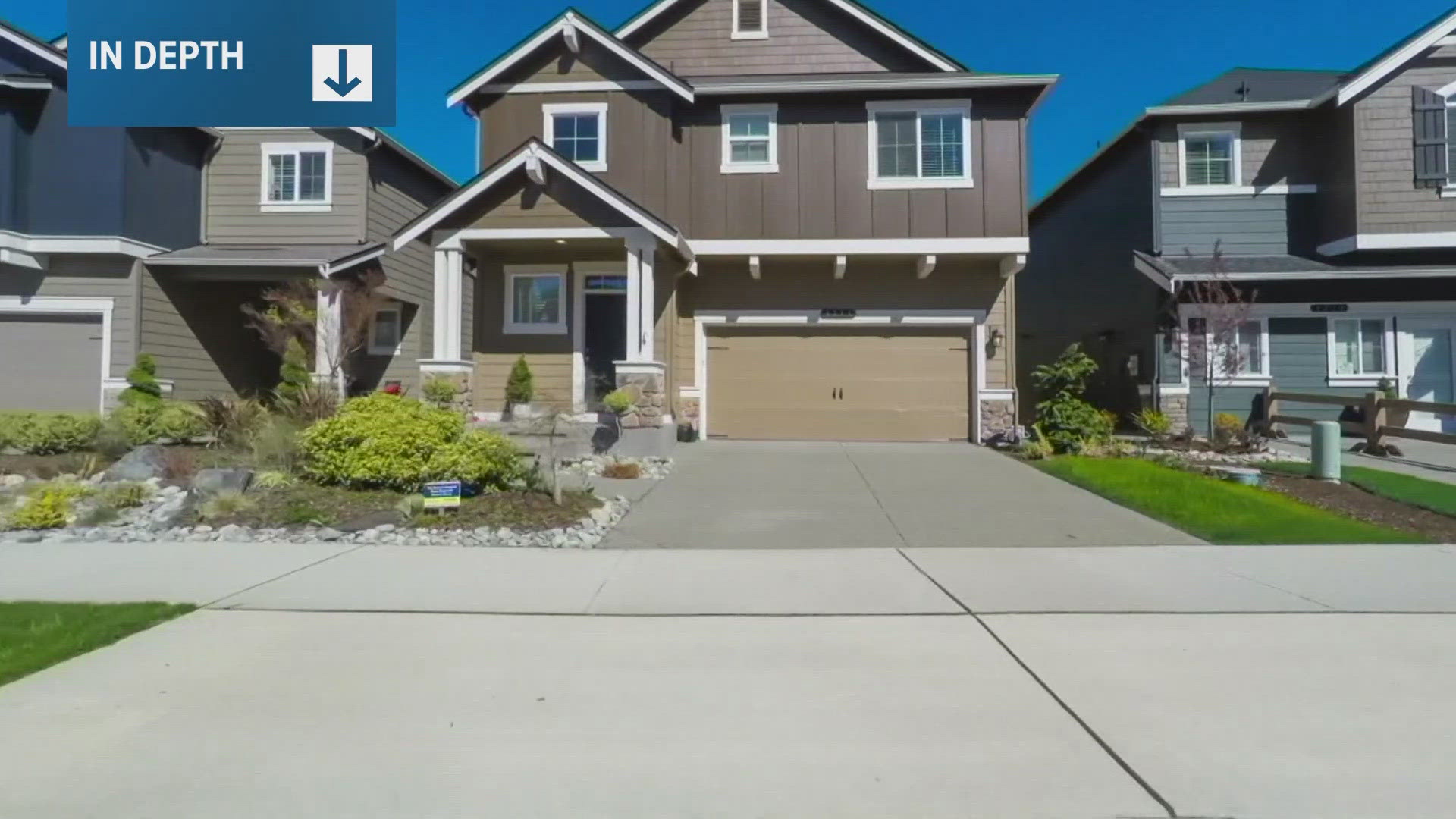DALLAS — Read this story and more North Texas business news from our partners at the Dallas Business Journal. See Correction/Clarification at the end of this article.
The extra monthly costs associated with buying a home instead of renting won't fall back to pre-pandemic levels until the end of 2028 — another measure of how drastically the residential real estate market has shifted in recent years.
That’s according to a March analysis by real estate giant CBRE Group Inc., which calculated that it cost 115% more to buy than rent in Dallas at the end of 2023.
The premium could fall to about 77% in Dallas by the fourth quarter of 2028, close to the levels seen from 2012 to 2019.
CBRE looked at the typical monthly mortgage cost, including taxes and based on projected interest rates with a 10% down payment. Data came from the company itself as well as Freddie Mac, the U.S. Census Bureau, Realtor.com, the Federal Housing Finance Agency and Oxford Economics.
This trend is seen across the country. CBRE reported that the cost to own has risen 75% nationally since 2019 — and was 38% higher than the cost to rent at the end of 2023.
But Dallas still had a smaller spread between the cost of buying versus renting than Austin, where the premium was 164% at the end of 2023. In Houston, the premium was 106%.
Los Angeles had the steepest premium at 173%.
To put it another way, the Dallas market had a cost multiplier of 2.2 at the end of 2023. That meant it was more than twice as expensive to buy than to rent on a monthly basis, according to Travis Deese, CBRE associate director of multifamily research.
This data provides useful context for businesses and policymakers. While it's common for buying a home to be more expensive than renting in big, desirable cities, the current trend represents a headwind for potential buyers as well as Realtors and other residential real estate professionals.
The situation is particularly stark for young workers in major metro areas. That's resulted in many departing big urban areas or delaying home-buying.
"The disparity between mortgage payments and rental costs presents a substantial hurdle for aspiring homeowners,” stated Matt Vance, Americas head of multifamily research for CBRE. "The sharp increase in the cost of buying has made it increasingly difficult for individual and families to make the transition from renting to owning."
The relationship between buying and renting is cyclical. High home prices and interest rates push more people to rent, driving up prices in the multifamily sector and hopefully providing some relief in the single-family market. But just how long the cycle lasts is of huge importance to many sectors of the economy. And recalcitrant interest rates and modest projected rent growth could make it a protracted process.
"That has created a lot of people with essentially golden handcuffs because they don’t want to sell their homes because if they have to sell their homes, then they have to originate a new loan ... with an extremely high interest rate," Deese said.

